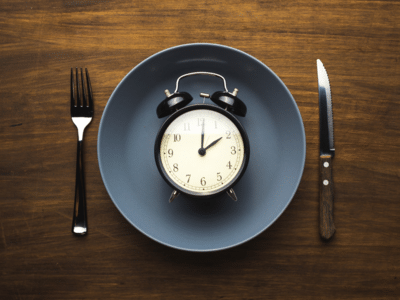For many, dinner time is dictated by busy schedules, late-night meetings, or even cravings that hit after dark. But according to nutrition experts, the hour you sit down to eat could play a bigger role in your digestion, sleep quality, and long-term health than you realize. Registered dietitian nutritionist Marisa Moore told USA Today that while there is no single “perfect” dinner time, what matters is how close your meal is to bedtime.
The golden rule: keep a buffer before bed
Moore cautions that eating large, heavy meals less than two to three hours before lying down can trigger poor digestion and interfere with restful sleep. “Eating large meals too close to bedtime can interfere with digestion and sleep quality. This is especially important if you already have or are trying to prevent gastric reflux,” she said in the report. So, if your lights are out by 10 p.m., nutritionists suggest aiming for dinner around 6 p.m. to give your body a comfortable buffer.
Early birds may sleep better
Julia Zumpano, a registered dietitian at Cleveland Clinic, echoes this, emphasizing that an earlier dinner often leads to improved sleep and steadier blood sugar levels. “An earlier dinner gives you a good amount of time to digest your food and allows your blood sugar to properly rise and fall after dinner,” she explained. People who adopt this practice often report better sleep quality compared to those who eat late into the night.

What if late dinners are unavoidable?
Not everyone has the luxury of a 6 p.m. meal. Work shifts, family obligations, or even cultural habits often push dinner later. In such cases, experts advise keeping meals lighter and focusing on protein and vegetables rather than heavy, starchy, or fatty foods. Zumpano also recommends gentle movement — like a short walk or light chores — after eating to aid digestion if dinner ends up happening close to bedtime.
The rise of time-restricted eating
Both Moore and Zumpano highlight the growing popularity of time-restricted eating, a form of intermittent fasting where all meals are consumed within an 8–12 hour window. For example, finishing dinner by 7 p.m. and fasting until 7 a.m. the next morning helps the body rest from digestion overnight. While not necessary for everyone, experts say it may benefit those struggling with late-night hunger or erratic eating schedules.
Listen to your body, not the clock
Ultimately, the healthiest dinner time depends on lifestyle, sleep habits, and health goals. One late meal won’t derail your well-being, but consistently ignoring hunger cues or eating too close to bedtime can create long-term issues. “It’s important to give your body rest from eating, but the food you choose can play an even greater role in health,” Zumpano emphasized in the Cleveland Clinic report.
The golden rule: keep a buffer before bed
Moore cautions that eating large, heavy meals less than two to three hours before lying down can trigger poor digestion and interfere with restful sleep. “Eating large meals too close to bedtime can interfere with digestion and sleep quality. This is especially important if you already have or are trying to prevent gastric reflux,” she said in the report. So, if your lights are out by 10 p.m., nutritionists suggest aiming for dinner around 6 p.m. to give your body a comfortable buffer.
Early birds may sleep better
Julia Zumpano, a registered dietitian at Cleveland Clinic, echoes this, emphasizing that an earlier dinner often leads to improved sleep and steadier blood sugar levels. “An earlier dinner gives you a good amount of time to digest your food and allows your blood sugar to properly rise and fall after dinner,” she explained. People who adopt this practice often report better sleep quality compared to those who eat late into the night.
What if late dinners are unavoidable?
Not everyone has the luxury of a 6 p.m. meal. Work shifts, family obligations, or even cultural habits often push dinner later. In such cases, experts advise keeping meals lighter and focusing on protein and vegetables rather than heavy, starchy, or fatty foods. Zumpano also recommends gentle movement — like a short walk or light chores — after eating to aid digestion if dinner ends up happening close to bedtime.
The rise of time-restricted eating
Both Moore and Zumpano highlight the growing popularity of time-restricted eating, a form of intermittent fasting where all meals are consumed within an 8–12 hour window. For example, finishing dinner by 7 p.m. and fasting until 7 a.m. the next morning helps the body rest from digestion overnight. While not necessary for everyone, experts say it may benefit those struggling with late-night hunger or erratic eating schedules.
Listen to your body, not the clock
Ultimately, the healthiest dinner time depends on lifestyle, sleep habits, and health goals. One late meal won’t derail your well-being, but consistently ignoring hunger cues or eating too close to bedtime can create long-term issues. “It’s important to give your body rest from eating, but the food you choose can play an even greater role in health,” Zumpano emphasized in the Cleveland Clinic report.
You may also like

DC under federal control: Trump to patrol Washington streets with police, military; intensifies crackdown

Sri Lanka Is Always A Threat: Thisara Perera Ahead Of Asia Cup 2025

Strictly Come Dancing announces Emmerdale star Lewis Cope as Kristian Nairn replacement

Donald Trump just admitted the real motivation for his latest dictator-esque obsession

Obstacles from Andhra Pradesh and Maharashtra for Krishna Upper Bank Project: Karnataka govt






